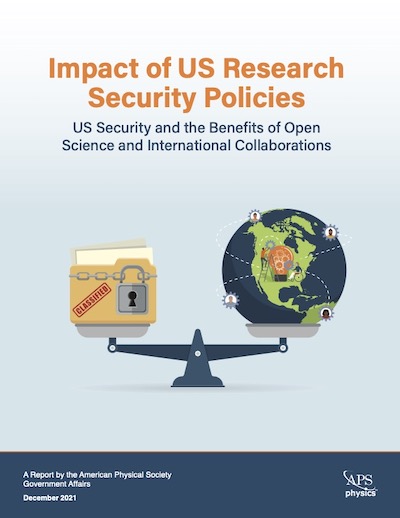New Report: “Impact of US Research Security Policies: US Security and the Benefits of Open Science and International Collaborations”
December 20, 2021
The pace of scientific discovery and the translation of those discoveries into usable technologies has greatly accelerated in the past decades, resulting in a highly competitive world where nations are now challenging the United States’ leadership in science, technology, and innovation. To remain competitive, the United States must continue to capitalize on two of its key advantages—(1) providing an environment that encourages openness and the free exchange of information and (2) being a destination of choice for the world’s best and brightest students and scholars to study and/or work. Unfortunately, the results from a September 2021 survey of APS members presented in this report reveal that the US federal government’s current response to research security concerns is putting both advantages in jeopardy.
The quantitative survey results demonstrate direct impacts of current US research security policies on the US research enterprise. These policies are having a chilling effect on US-based researchers’ involvement in international collaborations, which bring new ideas, techniques, and scholars to the US research and development (R&D) ecosystem. Moreover, these policies are causing a growing unease among talented international graduate students and early career scholars that is driving them to consider pursuing their careers in countries other than the United States. In response to these impacts, the report offers a series of policy recommendations aimed at reformulating current research security policies, recommitting the United States to open science and collaboration, and increasing our ability to attract and retain international talent.


